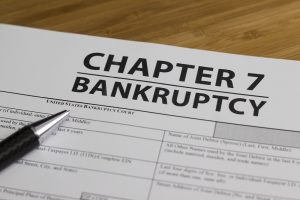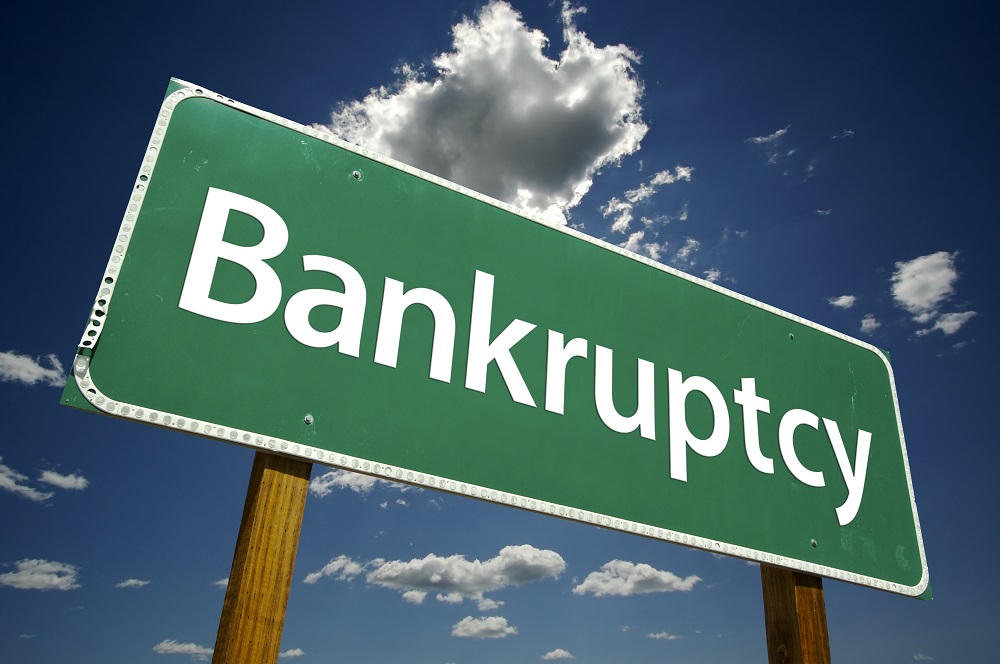A Tucson Bankruptcy Lawyer Explains Is An Arizona
Chapter 7 Bankruptcy Right for You?
Part I
 Each year, millions of Americans and tens of thousands of individuals across the state of Arizona will make the difficult decision to file for bankruptcy. Those considering the possibility of bankruptcy are almost always struggling with burdensome debt. Often, the final decision to file for bankruptcy comes at the moment when the individual can no longer handle the harassing phone calls, threats, and financial insecurity that accompanies a significant amount of past due debt. In the past few years, more Americans than ever before face the prospect of losing their homes due to upside down mortgages. If you are drowning in debt, struggling to make credit card payments, behind on your mortgage or auto loan, facing foreclosure or a deficiency judgment, or otherwise overwhelmed by financial burdens, bankruptcy may be a viable option to regain your financial freedom.
Each year, millions of Americans and tens of thousands of individuals across the state of Arizona will make the difficult decision to file for bankruptcy. Those considering the possibility of bankruptcy are almost always struggling with burdensome debt. Often, the final decision to file for bankruptcy comes at the moment when the individual can no longer handle the harassing phone calls, threats, and financial insecurity that accompanies a significant amount of past due debt. In the past few years, more Americans than ever before face the prospect of losing their homes due to upside down mortgages. If you are drowning in debt, struggling to make credit card payments, behind on your mortgage or auto loan, facing foreclosure or a deficiency judgment, or otherwise overwhelmed by financial burdens, bankruptcy may be a viable option to regain your financial freedom.
In Part I of this three part series, we pose a list of questions designed to help you decide whether Chapter 7 bankruptcy is the right solution for you. While these factors can help sway early decision making, they cannot replace the critically important advice of a licensed Arizona bankruptcy attorney.
1.Are you judgment proof?
Unsecured creditors are generally required to obtain a court judgment before they can garish your wages or seize your assets. Exceptions to this rule include collections for student loans, child support, and taxes. If your debts are mainly of the unsecured type that will require a judgment, the next question you must consider is whether you have income or property that creditors can seize. A significant amount of income and property is protected from seizure, such as a portion of your wages, some personal property, some equity in your home, and Social Security.
If you have little to no assets capable of seizure, you are in essence judgment proof and may not need to file for bankruptcy. This does not mean, however, that you couldn’t benefit from declaring bankruptcy. A licensed bankruptcy attorney in Arizona can thoroughly assess your income, assets, and debts to determine your bankruptcy options.
2.Will your debt be discharged in a Chapter 7 bankruptcy?
During a Chapter 7, otherwise referred to as “liquidation,” bankruptcy, not all debts are capable of being discharged. If your debts are largely non-dischargeable, bankruptcy may not be your best option. The following debts cannot be discharged in a Chapter 7 bankruptcy:
- Income taxes
- Child support
- Alimony
- Student loans
- Some court judgments, including those arising from injuries or death caused by driving while intoxicated
- Some recent debts for luxuries or payday advances
In addition, a bankruptcy court can declare certain debts non-dischargeable if the creditor objectors to their discharge. These debts include:
- Debts incurred using fraud
- Debts incurred from embezzlement or theft
- Debts arising out of a marriage settlement agreement or divorce decree
- Debts incurred from the malicious or willful injury to another’s property
It is vital to enlist the assistance of a licensed bankruptcy attorney to examine your entire debt portfolio and determine to what extent Chapter 7 can free you of financial burdens.
Declaring bankruptcy is one of the biggest life decisions you can make. For many, it will open a path to a renewed financial future, but it does not come without repercussions. The knowledgeable Tucson bankruptcy attorneys at Ariano & Associates, PLLC personally consult with each and every client considering the possibility of bankruptcy. Our compassionate, skilled attorneys make a thorough assessment of your debts, income, and assets and guide you towards the best financial decision to alleviate your debt. Looking for a cheap Tucson bankruptcy attorney? Call to find out about our affordable rates.

